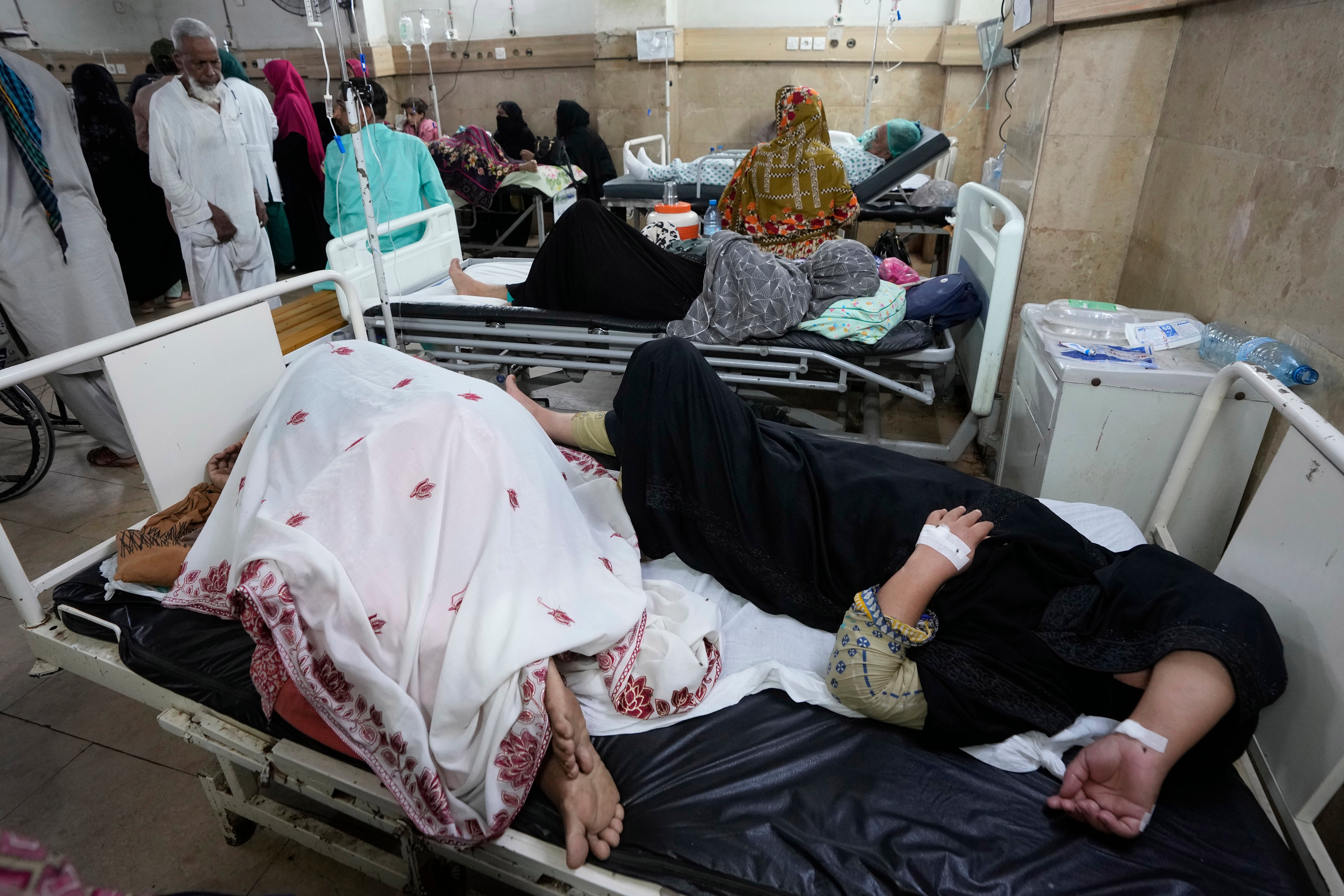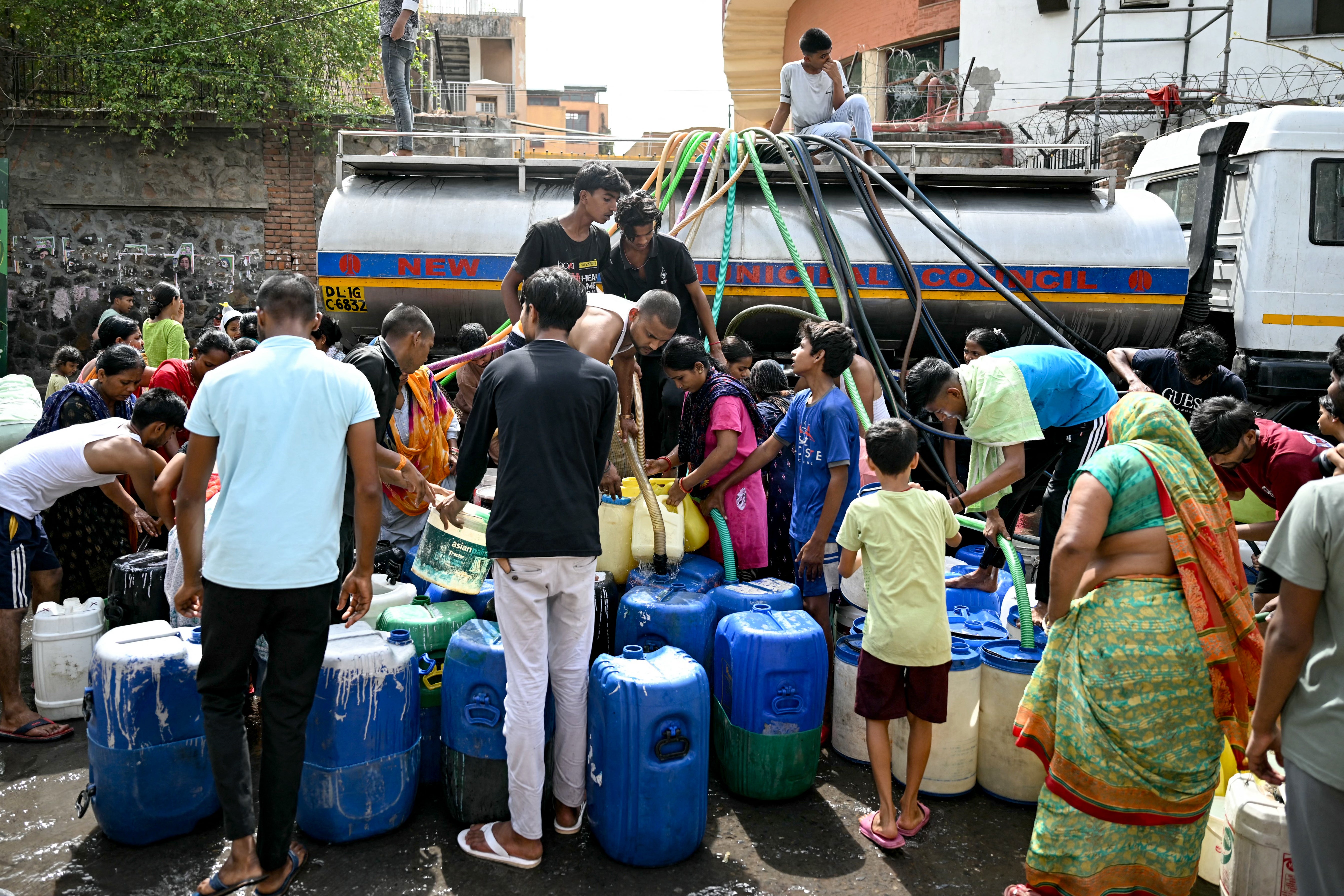Hundreds dying every day in Karachi as Pakistan battles brutal summer
Most fatalities in areas ‘where a lot of load-shedding is going on’, says NGO which received 427 bodies in four days
Your support helps us to tell the story
From reproductive rights to climate change to Big Tech, The Independent is on the ground when the story is developing. Whether it's investigating the financials of Elon Musk's pro-Trump PAC or producing our latest documentary, 'The A Word', which shines a light on the American women fighting for reproductive rights, we know how important it is to parse out the facts from the messaging.
At such a critical moment in US history, we need reporters on the ground. Your donation allows us to keep sending journalists to speak to both sides of the story.
The Independent is trusted by Americans across the entire political spectrum. And unlike many other quality news outlets, we choose not to lock Americans out of our reporting and analysis with paywalls. We believe quality journalism should be available to everyone, paid for by those who can afford it.
Your support makes all the difference.At least 427 people have died over four days in just one city in Pakistan due to the lethal heatwaves scorching south Asia this summer.
The non-profit Edhi Foundation said it received 427 bodies in four days until Tuesday in Karachi, the country’s biggest city and financial centre.
Most of them were homeless people and drug addicts living on the streets, the NGO said on Wednesday.
“The extreme heatwave got to them as these people spend their entire day out in the open searching for fixes,” Faisal Edhi, who heads the foundation, was quoted as saying by news agency PTI.
“We have four mortuaries in Karachi and we have reached a stage where there is no more space to keep bodies.”
Mr Edhi said his foundation received 135 bodies on Tuesday alone and 128 on Monday.
The government of the southern Sindh province, of which Karachi is the capital, meanwhile reported 23 deaths across three government hospitals on Tuesday.
Sindh is living through a brutal summer with the temperature nearing a record 52.2C last month.
The heat intensified again this week as the mercury crossed 40C for the third consecutive day in Karachi on Wednesday – temperatures that are too high and dangerous in a humid coastal city.

The prolonged heatwave has increased pressure on the power grid with outages recorded across the country, depriving people of the little respite fans and coolers could offer.
The Edhi Foundation said many of the bodies they received were from areas “where a lot of load-shedding is going on”.
Deaths from heatwaves have been soaring across South Asia.
India, battling its longest-ever heatwave this year with temperatures crossing 50C, reported over a hundred deaths and 40,000 cases of suspected heatstroke until May.
Heat-related deaths are generally highly underreported across the world and activists in India and Pakistan have said the numbers could be much higher than the official tallies.

In Delhi, a rights group working with the homeless population told The Independent that at least 400 people died on the streets of the Indian capital from 1 March to 10 June.
At least 1,301 people have also died during this year’s Hajj pilgrimage that took place during an exceptional heatwave in Saudi Arabia, according to an official statement.
The last 12 months have been the hottest ever recorded. Scientific assessments have found that the climate crisis, caused by burning oil, coal and gas, is responsible for increasing the temperatures and causing more heatwaves.
Alongside brutally high temperatures during the day, a recent study found that climate crisis and lack of green spaces are making nights hotter, putting extra strain on people – particularly those exposed to heat the next day.

Join our commenting forum
Join thought-provoking conversations, follow other Independent readers and see their replies
Comments